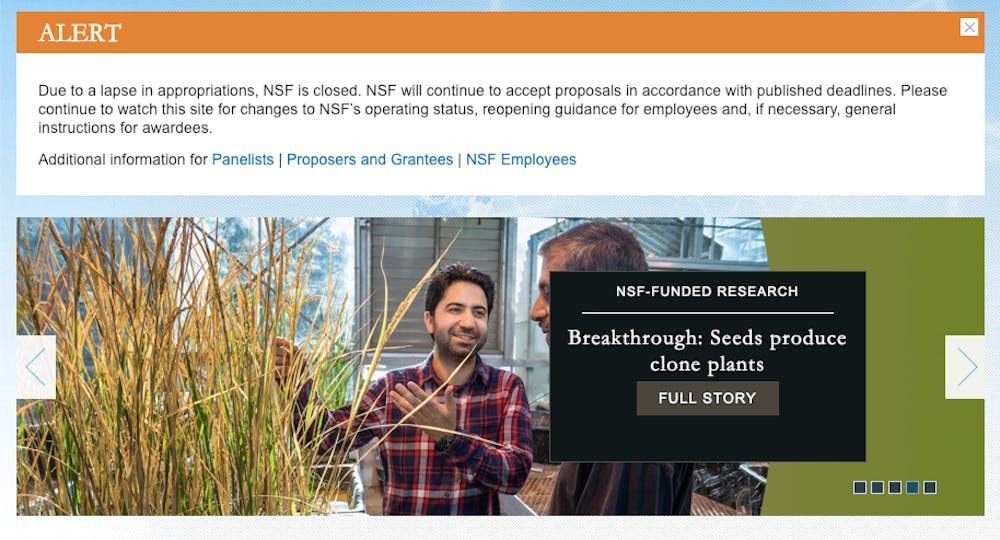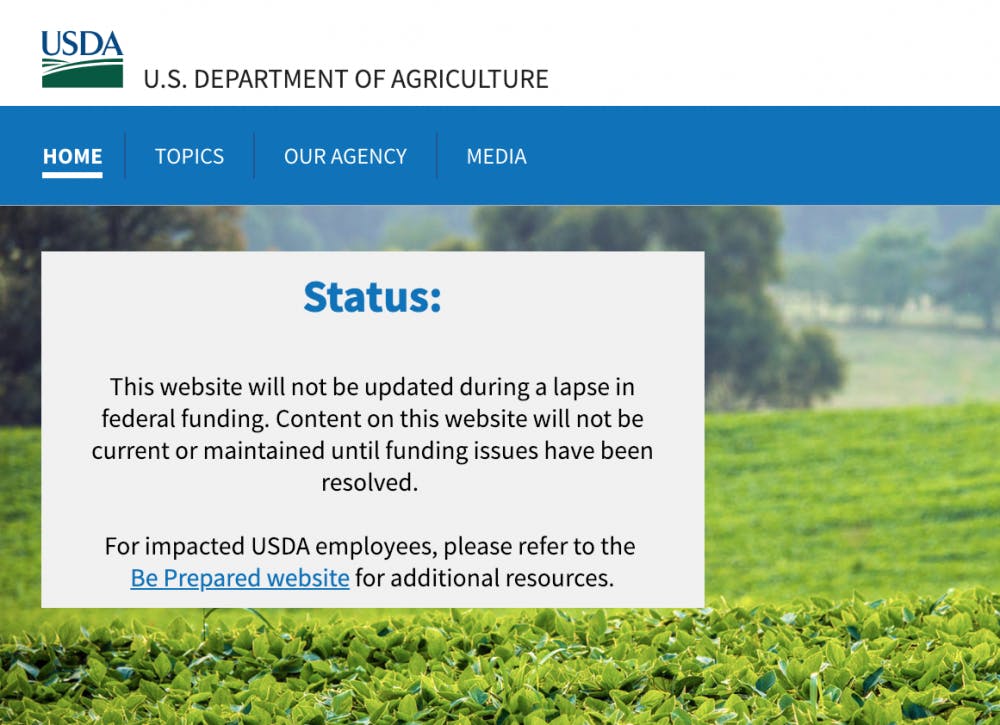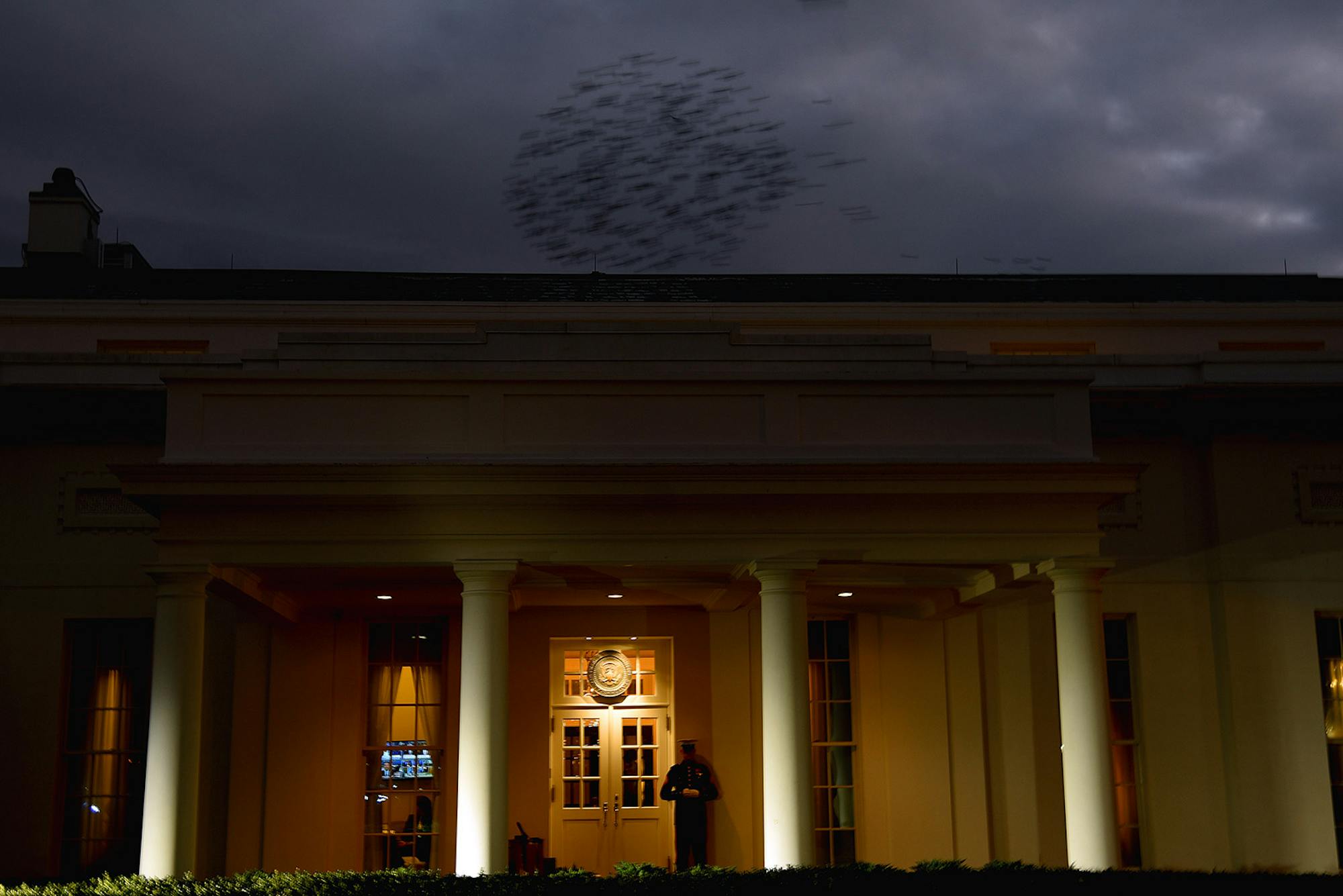As the partial federal government shutdown continues, Auburn University could soon begin feeling more serious effects.
Grant proposals won’t be processed. New awards will be delayed. Funds may run out. And the University won’t be able to invoice for some federal projects.
Negotiations between President Donald Trump and Congress have been at an impasse for three weeks, leaving about a quarter of the federal government closed.
With no end in sight, the shutdown became the longest in American history on Friday, Jan. 11. As of Thursday, it had stretched into its 26th day.
More than 800,000 federal workers are either furloughed or working without pay as the president attempts to convince Democrats to provide $5.7 billion for a wall along the U.S.-Mexico border.
They've shown no willingness to do so.

Auburn Interim Vice President for Research Jennifer Kerpelman said the University hasn’t faced major issues with grants or awards yet.
“We’re currently seeing little impact so far on delays with federal grant proposals, new awards or administration of ongoing grants and contracts,” Kerpelman said, adding a warning. “However, if the shutdown continues much longer, we will likely see more problems."
Kerpelman’s office is monitoring the shutdown and its impact on University research projects.
"In the meantime, we remain committed to Auburn excellence, so Auburn researchers, scientists and experts continue their focus on developing solutions to real-world problems," Kerpelman said.
Among the affected government entities are the departments of agriculture, commerce, homeland security, housing and urban development, transportation, interior and several others.
NASA, the National Oceanic and Atmosphere Administration and the National Science Foundation are also shut down.
In a statement, Auburn President Steven Leath urged leaders to find a quick solution to the shutdown and its subsequent delays in funding for University projects.
“Auburn is a top-tier Carnegie R1 research university, so we’re concerned about any roadblock to our partnerships with key federal agencies,” Leath said. “Those partnerships advance critical national priorities such as cyber security, advanced manufacturing, sustainable resources and affordable housing. As part of our higher education association, we and other universities have called for a quick end to the partial government shutdown, and we’re hopeful it will be resolved soon.”
It hasn't been resolved yet, and the path to a compromise appears narrow. Congressional Democrats and the president haven’t resumed negotiations since Trump walked out of their most recent meeting last week.
Edward Thomas, the associate dean for research and graduate studies in the College of Sciences and Mathematics, is worried that if the shutdown continues, it will cause issues with future grants that would typically be reviewed and awarded in the spring.
“In short, COSAM has not seen a direct impact on any of our currently funded awards,” Thomas told The Plainsman. “But, while agencies like the NSF and NASA are still accepting proposals from faculty members, none of those proposals are being reviewed.”

In a normal year, the period from January to March is when most reviews happen. That allows new awards to be funded by the summer.
“So, the actual impact of this shutdown may not be seen for several more months,” Thomas said.
College of Agriculture Associate Dean for Research Henry Fadamiro said the College of Agriculture, which receives a large degree of its research funding from the USDA, has been affected in similar ways.
“Our faculty are able to continue to submit grant proposals to USDA and other affected agencies via the electronic submission portals,” Fadamiro said. “However, those proposals may not be reviewed until the shutdown has ceased.”
Issuance of new awards and requests for rebudgeting, no-cost extensions, award continuations and other administrative actions are also being delayed, Fadamiro said.
“Drawdowns of funds for approved grants [and] projects are on hold until the shutdown is resolved,” Fadamiro said. “This places a financial burden on the University, since expenditures are still being incurred on these projects.”
The funding gap could affect smaller colleges and universities more severely than bigger colleges like Auburn with deeper wallets.
Fadamiro, who oversees research in the college, said the college is finding ways to work around the issues for the time being, though.
Auburn is not the only university being affected by the government shutdown. The University of Arizona issued similarly grim advisories to its professors. Emory University has said more than 100 of its active grants have been affected, the Chronicle of Higher Education reported.
The Association of Public and Land-Grant Universities, a national group of public research universities of which Auburn is a member, said the effects range from agencies not picking up their phones or checking email to effects on researchers income and funding.
“Congress and the White House must come together and fund the government without further delay,” the association said in a statement.

Karen McNeal, an associate professor in geosciences, said she is worried that research will really be affected when grants that are disbursed on a quarterly, semiannual or annual basis begin to run out.
“There’s no one there to say, ‘Here is your next allocation,’” said McNeal, who does her own research in the department of geosciences and serves as a research adviser for graduate students in the department. “They have to spend money without actually having it or being able to bill it.”
The shutdown could end up affecting faculty salaries and graduate student salaries — even for grants and projects that have already begun — in addition to the more fundamental issue of getting research done.
“If it becomes longer term — especially into the summer — is when we begin to see those impacts becoming real,” McNeal said.
The delay in grant and project reviews by federal agencies could cause a similar hiccup, shortening the amount of time University researchers have to respond to requests for proposals.
“It’s not just federal employees that get affected,” McNeal said. “There’s lots of non-federal employees that are affected by governmental shutdowns or could be affected if it becomes longer term.”
McNeal said researchers in her department are on hold in terms of new or upcoming projects, waiting for some proposals submitted since September to be reviewed.
“The process for those submitted grants are halted,” McNeal said. “There is nothing happening.”
The government’s fiscal year ends on Sept. 30. More grants will pile up awaiting review the longer the shutdown lasts, and if it lasts long enough, the agencies may not be able to catch up.
“They’re going to become more and more backed against a wall to process all of that and to get it going by the new fiscal year,” McNeal said.
The waiting game is taking a toll on professors waiting for the government to reopen so their proposals can be processed.
Some, like McNeal, are waiting on a call for proposals that was already supposed to be announced, but the agency has closed and there is no one there to release the call or process applications.
When they do open back up, they’re already going to be a month behind, if not more, where they planned to be in putting the request out.
“So, to spend their fiscal year dollars they’re going to have to put it out, and instead of giving us 60 days to respond, they’re required to give us 30, so that’s probably all we’re going to get,” McNeal said.
That means researchers hoping to get that award have to write proposals in a shorter period of time.
"And that’s the best case scenario," McNeal said. "They may not decide to spend the money at all.”
The reality is that the shutdown will have a long-term effect on research. While things are frozen now, it could cause a chaotic flurry of action when the government does reopen.
“There’s always a domino effect,” McNeal said.
And the research funded by the federal government is important, and it runs the gamut, from cancer treatments to cyber security.
“The government funds a good portion of the science that happens in this country,” McNeal said. “Many of the things that people enjoy using every day have had their initial beginnings at a university somewhere with someone doing research.”





Share and discuss “'There’s always a domino effect:' The impacts of the federal shutdown on Auburn research” on social media.